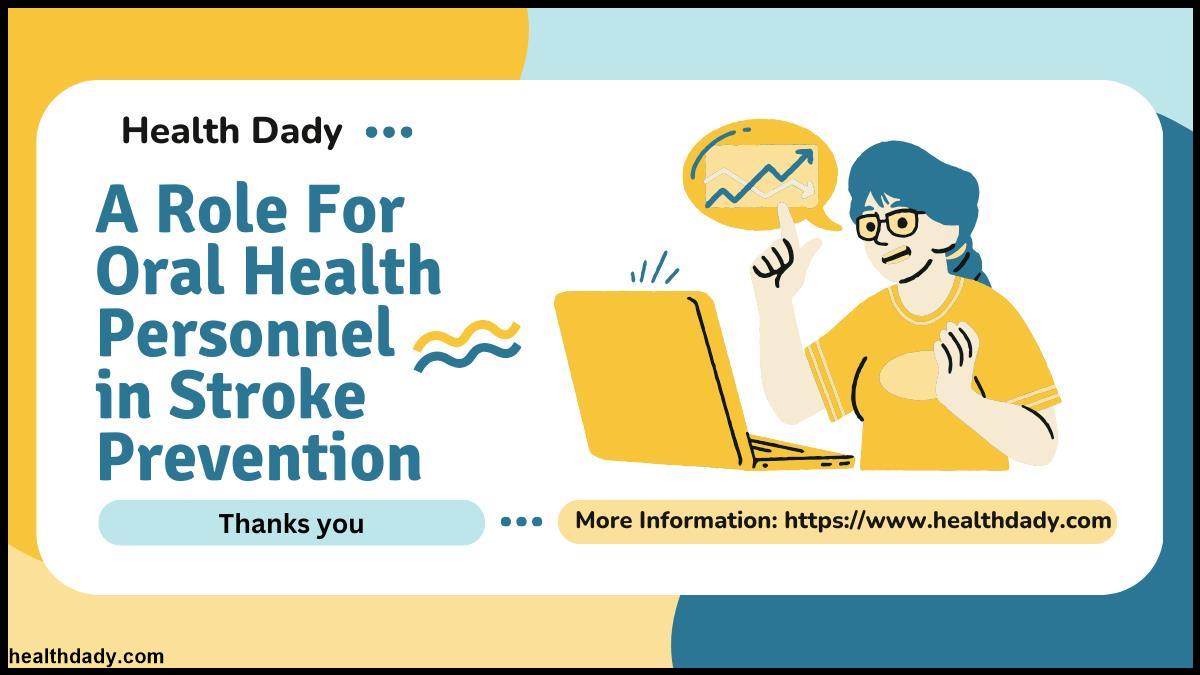By understanding the role for oral health personnel in stroke prevention, the healthcare system can adopt a holistic approach to patient care.
Table of Contents
A Role for Oral Health Personnel in Stroke Prevention
Many people have come to understand the link between oral health and overall systemic health in recent days. This is because recent research highlights a connection between oral health and stroke risk. We all knew, stroke is a leading cause of disability and death worldwide.
It can be influenced by several risk factors, including high blood pressure and obesity. But, there is another less known factor. It is poor oral health.
Dental personnel play a major role in stroke prevention. They can only identify the early signs of systemic issues and educate patients about their risks. A role for oral health personnel in stroke prevention could redefine how preventive health is approached in dentistry and general medicine.
The Oral-Systemic Health Connection
Gum disease is a chronic inflammatory condition. It affects the tissues surrounding the teeth. It is usually caused by poor oral hygiene. It may lead to plaque buildup, bacterial growth, and inflammation.
Research has linked periodontal disease to increased levels of systemic inflammation. This can contribute to various health problems, including heart disease, diabetes, and stroke.
In patients with gum disease, inflammation can spread through the bloodstream. This will lead to improved levels of C reactive protein and other inflammatory markers associated with cardiovascular events.
Stroke, like many cardiovascular conditions, can be linked to inflammation. This damages blood vessels and promotes clot formation. When blood vessels become damaged, the risk of a stroke increases. Regular oral health checkups and preventive care could lower these risks.
How Oral Health Personnel Can Contribute to Stroke Prevention?
Oral health personnel often have regular interactions with patients. They can observe early signs of conditions associated with stroke risk. This gives them a unique advantage in identifying potential issues early on and guiding patients toward preventive measures.
Let us explore how oral health personnel can actively contribute to stroke prevention:
Screening and Identifying Risk Factors
During routine checkups, oral health professionals can assess a patient’s oral health for signs of periodontal disease. By identifying gingivitis and chronic inflammation, dental professionals can point out risk factors that may contribute to broader systemic conditions.
Patients with persistent gum disease could be counseled on the potential risks and referred to their primary care physician for further evaluation.
Educating Patients on the Oral-Systemic Connection
Many patients may not be aware of the impact oral health can have on their risk of stroke. Dentists and dental hygienists can educate patients about the potential for bacteria from periodontal infections to enter the bloodstream and contribute to vascular inflammation.
Discussing how gum disease could affect their heart and brain health may encourage patients to prioritize their oral hygiene and follow a healthy oral care routine.
Providing Guidance on Preventive Care
Oral health personnel can play a preventive role by guiding patients on proper oral care techniques. This will include brushing and flossing to reduce bacterial growth.
Supporting the importance of regular checkups and cleanings can help patients maintain good oral health. It reduces inflammation and minimizes stroke risk factors.
Collaborating with Medical Professionals
In a broader health network, oral health personnel could work closely with medical professionals to identify high-risk patients. For instance, a patient with diagnosed hypertension who also shows signs of severe gum disease might benefit from a coordinated care approach.
Dentists can provide detailed reports to primary care doctors to ensure complete care addressing oral and systemic health concerns.
The Benefits of Regular Dental Checkups for Stroke Prevention
Dental checkups are traditionally viewed as necessary for avoiding cavities and gum disease. But they offer more than that. Routine visits allow dental professionals to monitor signs of inflammation and systemic health indicators.
Regular checkups can help control oral bacteria levels and keep inflammation in check. This may, in turn, reduce stroke risk. Educational initiatives targeting both healthcare providers and patients could help reinforce the idea of the role for oral health personnel in stroke prevention is important.
Dental schools, clinics, and professional organizations can lead the way by integrating stroke prevention and cardiovascular education into their curriculums and outreach programs.
Wrapping up
Oral health is an integral part of managing and reducing stroke risks. The correlation between oral health and stroke risk stresses the importance of preventive healthcare. By understanding the role for oral health personnel in stroke prevention, the healthcare system can adopt a holistic approach to patient care.

